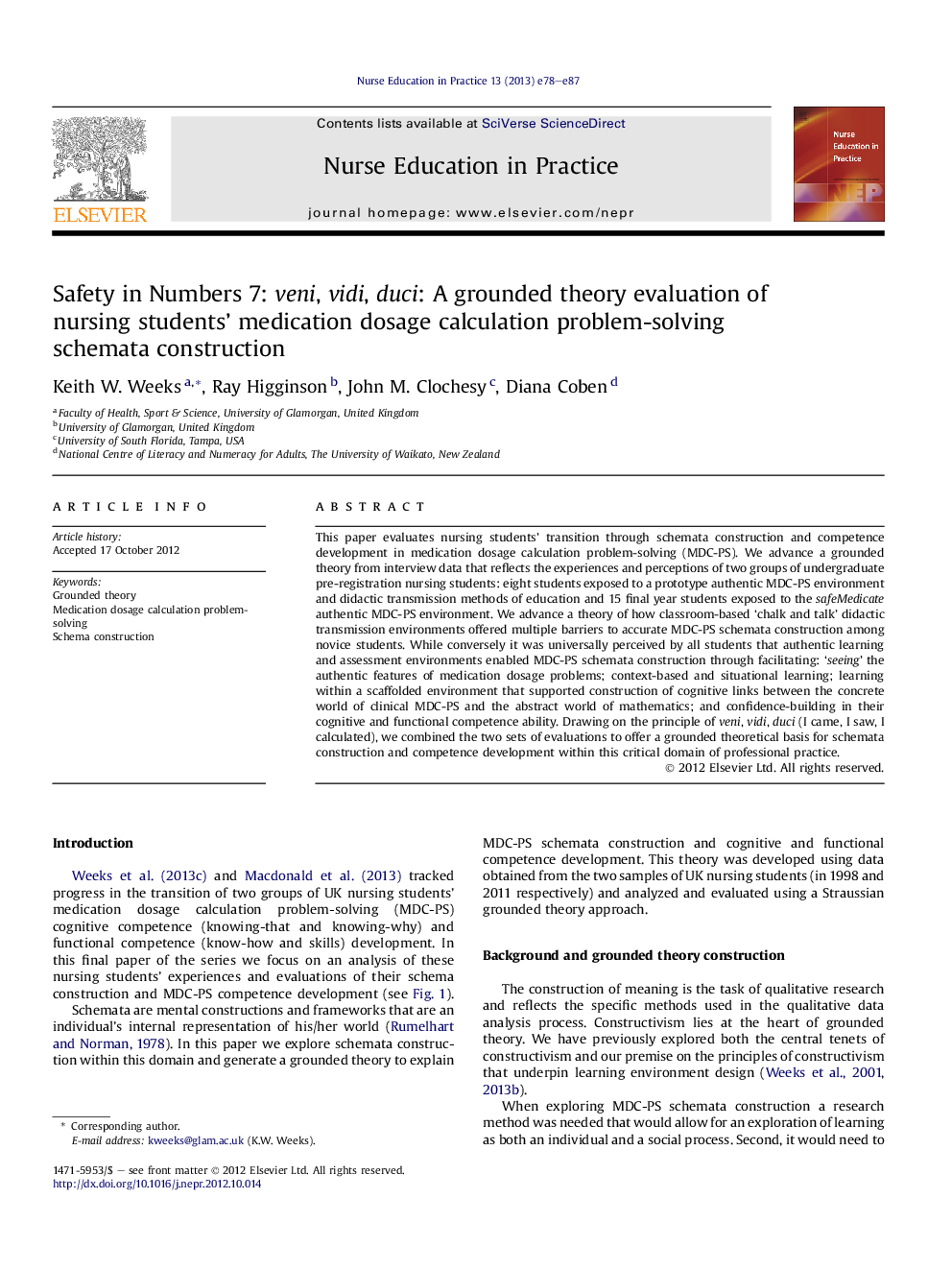| کد مقاله | کد نشریه | سال انتشار | مقاله انگلیسی | نسخه تمام متن |
|---|---|---|---|---|
| 367136 | 621480 | 2013 | 10 صفحه PDF | دانلود رایگان |

This paper evaluates nursing students' transition through schemata construction and competence development in medication dosage calculation problem-solving (MDC-PS). We advance a grounded theory from interview data that reflects the experiences and perceptions of two groups of undergraduate pre-registration nursing students: eight students exposed to a prototype authentic MDC-PS environment and didactic transmission methods of education and 15 final year students exposed to the safeMedicate authentic MDC-PS environment. We advance a theory of how classroom-based ‘chalk and talk’ didactic transmission environments offered multiple barriers to accurate MDC-PS schemata construction among novice students. While conversely it was universally perceived by all students that authentic learning and assessment environments enabled MDC-PS schemata construction through facilitating: ‘seeing’ the authentic features of medication dosage problems; context-based and situational learning; learning within a scaffolded environment that supported construction of cognitive links between the concrete world of clinical MDC-PS and the abstract world of mathematics; and confidence-building in their cognitive and functional competence ability. Drawing on the principle of veni, vidi, duci (I came, I saw, I calculated), we combined the two sets of evaluations to offer a grounded theoretical basis for schemata construction and competence development within this critical domain of professional practice.
Journal: Nurse Education in Practice - Volume 13, Issue 2, March 2013, Pages e78–e87